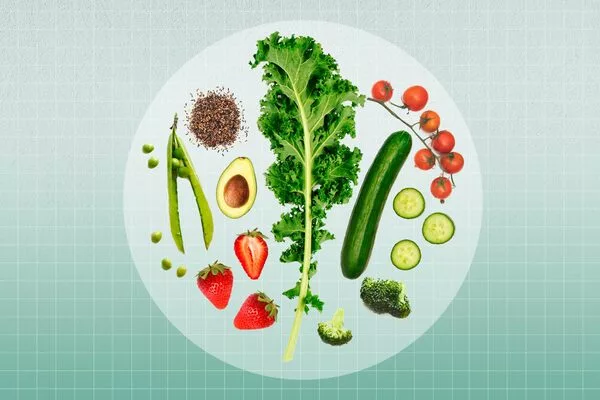An imbalance of free radicals and antioxidants in the body causes oxidative stress, which can cause cell and tissue damage. Oxidative stress occurs naturally and contributes to aging. Long-term oxidative stress, according to a large body of scientific evidence, contributes to the development of a variety of chronic conditions. Cancer, diabetes, and heart disease are examples of such conditions.
According to one study, oxidative stress in the brain has an effect on motivation. The findings also suggest that nutritional interventions can improve motivation. Motivation can mean the difference between success and failure, goal-setting and aimlessness, happiness, and unhappiness in life. However, becoming and maintaining motivation is frequently the most difficult step, a problem that has prompted extensive research.
A very small portion of that research has focused on metabolism. “Do differences in brain metabolites affect our ability to motivate?” Professor Carmen Sandi of EPFL’s School of Life Sciences wonders. “If that’s the case, could nutritional interventions that affect metabolite levels be a useful tool for improving motivated performance?”
Sandi’s group, with their colleagues at the Nestlé Institute of Health Sciences, have now published a study that shines the first light into answering that question. The researchers focused on an area deep into the brain called the “nucleus accumbens,” which is known to play a major role regulating functions like a reward, reinforcement, aversion, and, not least, motivation.
Our study provides novel insights on how brain metabolism relates to behavior and puts forward nutritional interventions targeting key oxidative process as ideal interventions to facilitate effortful endurance.
Professor Carmen Sandi
Metabolism and oxidative stress in the brain
The study’s premise was that the brain, like all tissues in our bodies, is constantly subjected to oxidative stress as a result of its metabolism.
What exactly is oxidative stress? Cells produce a number of toxic waste products in the form of highly reactive molecules known as “oxidative species” as they “eat” various molecules for fuel. Cells, of course, have a variety of mechanisms in place to remove oxidative species and restore the cell’s chemical balance. But the battle continues; sometimes the balance is upset, and that disruption is referred to as “oxidative stress.”
The glutathione connection
The brain is frequently subjected to excessive oxidative stress as a result of its neurometabolic processes, and the researchers wanted to know if antioxidant levels in the nucleus accumbens can affect motivation. To find an answer, the researchers looked at the brain’s most important antioxidant, glutathione (GSH), and its relationship to motivation.
“We looked at metabolites in the nucleus accumbens, a key brain region, and motivated performance,” Sandi explains. “We then turned to animals to understand the mechanism and investigate causality between the discovered metabolite and performance, demonstrating that nutritional interventions modify behavior via this pathway.”

Tracking GSH in the nucleus accumbens
First, they used a technique known as “proton magnetic resonance spectroscopy,” which can assess and quantify biochemistry in a specific region of the brain in a non-invasive manner. The researchers used the technique to measure GSH levels in the nucleus accumbens of both humans and rats. They then compared those levels to how well or poorly their human and animal subjects performed in standardized, effort-related tasks that measure motivation. They discovered that higher levels of GSH in the nucleus accumbens correlated with better and more consistent performance in the motivation tasks.
GSH levels and motivation
However, correlation does not imply causation, so the researchers moved on to live experiments with rats that were given micro-injections of a GSH blocker, which inhibited the synthesis and levels of the antioxidant. The rats were now less motivated, as evidenced by poor performance in effort-based, reward-incentivized tests.
On the contrary, when the researchers gave rats a nutritional intervention containing the GSH precursor N-acetylcysteine, which increased GSH levels in the nucleus accumbens, the animals performed better. The effect was “potentially mediated by a cell-type specific shift in glutamatergic inputs to accumbal medium spiny neurons,” the authors write.
Can nutrition or supplements help motivation?
“Our study provides novel insights on how brain metabolism relates to behavior and puts forward nutritional interventions targeting key oxidative process as ideal interventions to facilitate effortful endurance,” conclude the authors. The study’s findings “suggest that improvement of accumbal antioxidant function may be a feasible approach to boost motivation.”
“N-acetylcysteine, the nutritional supplement we gave in our study, can also be synthesized in the body from its precursor cysteine,” Sandi explains.
“Cysteine is found in ‘high-protein foods,’ such as meat, chicken, fish, and seafood. Other low-content sources include eggs, whole-grain foods like breads and cereals, and some vegetables like broccoli, onions, and legumes. Of course, there are other ways to increase GSH levels in the body besides N-acetylcysteine, but how they relate to levels in the brain – particularly the nucleus accumbens – is largely unknown. “Our findings demonstrate that dietary N-acetylcysteine can increase brain GSH levels and facilitate effortful behavior.”
















